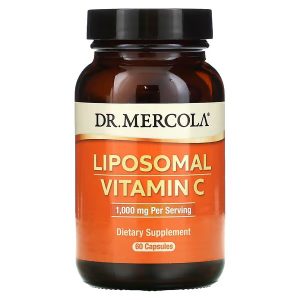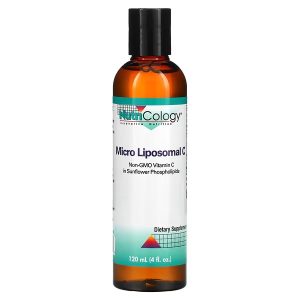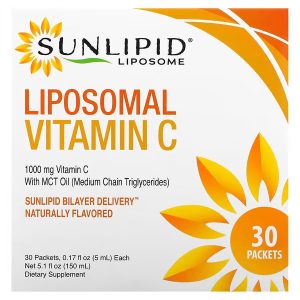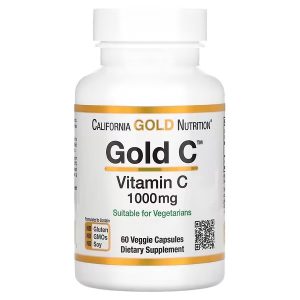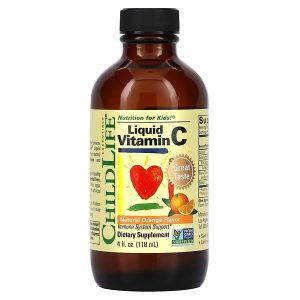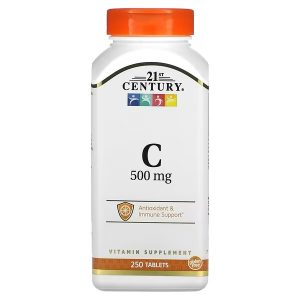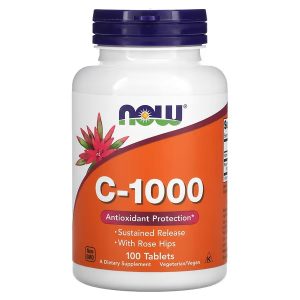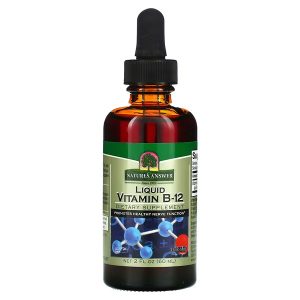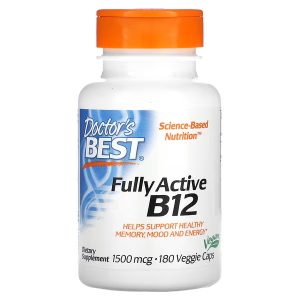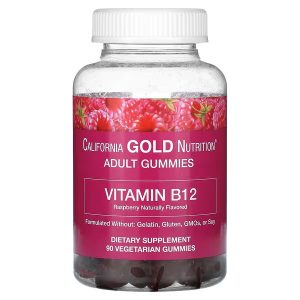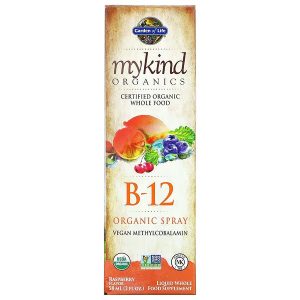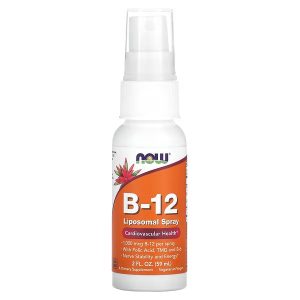The Powerhouse Trio: Magnesium Calcium and Zinc for Optimal Health
The Powerhouse Trio: Magnesium Calcium and Zinc for Optimal Health
The Balancing Act of Magnesium Calcium and Zinc
Navigating the vast ocean of supplements can feel overwhelming, but sometimes, it's the classic combinations that provide foundational support to our health. A trio that has stood the test of time in the wellness world is Calcium Magnesium and Zinc, each playing a crucial role in the body's symphony of functions. This formidable blend not only bolsters bone health but also offers a cascade of benefits that might not be immediately obvious.
Calcium and Magnesium: A Match Made for Muscle and Bone Health
The dynamic duo of Calcium and Magnesium work in concert – with Calcium being the lead mineral for maintaining bone density and Magnesium orchestrating over 300 biochemical reactions in the body, including muscle and nerve function. Zinc enters the mix, lending its immune-boosting prowess and influence on cellular metabolism. It's a tag team effort where balance is key; after all, too much Calcium without Magnesium can lead to less than optimal absorption.
Enhanced Absorption with Vitamin D3
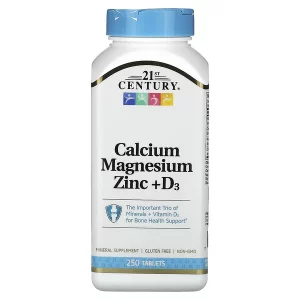 |
Turns out, the 21st Century, Calcium Magnesium Zinc + D3 supplement is akin to a quartet, adding Vitamin D into the harmony, which is crucial for maximizing Calcium absorption and supporting immune function. With 250 tablets per bottle, it offers a steady supply of these essential nutrients. Check it out here if you're considering a practical option to cover your bases. |
Nature's Bounty: Coated Caplets for Easy Intake
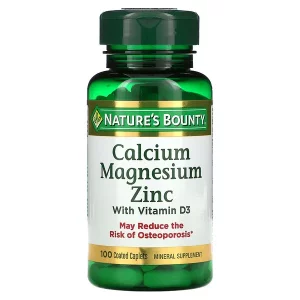 |
Adding to the lineup, Nature's Bounty offers a Calcium Magnesium Zinc blend enhanced with Vitamin D3 as well. Each coated caplet is designed with absorption in mind, ensuring that the body receives these vital minerals efficiently. It's a thoughtful consideration for those looking to maintain strong bones and healthy immune responses. |
Solaray's Veggie Capsules: Plant-Based Strength
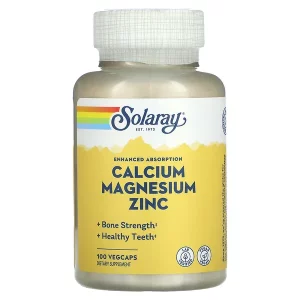 |
For those with a penchant for plant-based products,Solaray's Calcium Magnesium Zinc supplement stands out. Housed in veggie capsules, this blend is a go-to for vegetarians and anyone preferring a supplement derived from non-animal sources. It's a testament to Solaray's commitment to inclusivity and meeting diverse dietary needs. |
In the vast world of nutritional aids, it's refreshing to find options that simplify the route to well-being. As you navigate toward optimal health, consider the synergistic effects of Calcium Magnesium and Zinc, and how their combined strengths could enhance your wellness journey.
It's always exciting to explore new pathways to health, and with the benefits that these minerals provide, the journey can become a little easier and a lot more balanced. Whether you're stepping up your supplement game or just starting out, harnessing the collective power of these essential nutrients might just be the boost you've been looking for.
Frequently Asked Questions About Magnesium Calcium and Zinc
- What are calcium magnesium and zinc good for?
- Calcium magnesium and zinc play pivotal roles in maintaining overall health. Calcium is essential for bone strength and structure, magnesium supports nerve and muscle function, and zinc is crucial for a healthy immune system and wound healing.
- Where is magnesium found?
- Magnesium can be found in a variety of foods including green leafy vegetables, nuts, seeds, and whole grains. It's also available in supplement form, often in combinations with calcium and zinc.
- What are the side effects of calcium-magnesium and zinc?
- The combination of these minerals is generally safe when taken at recommended doses. However, excessive intake can lead to side effects such as digestive discomfort, kidney stones, and impaired absorption of other minerals.
- How much calcium magnesium and zinc should I take?
- Dosage depends on a variety of factors including age, sex, and health conditions. It's best to follow the Recommended Dietary Allowances (RDAs) for each mineral or consult a healthcare provider for personalized guidance.
- What does calcium magnesium and zinc help with?
- Beyond supporting bones, muscles, and immune health, these minerals assist with neurological functions, energy production, and may have benefits for mood regulation and sleep quality.
- Does calcium magnesium and zinc cause constipation?
- Calcium supplements can sometimes lead to constipation. However, magnesium often has a laxative effect which can counteract this. Proper hydration is also important when taking these supplements.
- Can you take calcium magnesium zinc while pregnant?
- These minerals are important during pregnancy, but it's crucial to stick to safe levels. Before starting any supplement regimen, pregnant women should always consult with their healthcare provider.
- Which magnesium is best for calcium absorption?
- Magnesium assists with the absorption of calcium, and citrate, glycinate, or chloride forms of magnesium are known for better absorption rates.
- Can you take calcium zinc and magnesium together?
- Yes, you can take calcium, zinc, and magnesium together, and they are often sold as a combined supplement. However, balance is essential to avoid any potential negative interactions and to ensure proper absorption. Timing and dosage should be considered based on individual health needs.
We recommend checking out our recent article about Vitamin C and it's role in your health.
Liposomal Vitamin C vs Traditional Tablets: A Comprehensive Comparison
Vitamin C Variants: Liposomal and Tablets
Vitamin C, an essential nutrient for maintaining overall health, is available in various forms, each offering unique benefits. In this comprehensive guide, we explore the nuances between liposomal vitamin C and traditional tablets. Understanding these differences is crucial for choosing a supplement that aligns with your health goals and lifestyle. Whether you’re seeking enhanced immune support, better skin health, or general wellness, this comparison will help you make an informed decision about your Vitamin C supplementation.
Understanding Vitamin C and Its Importance
Vitamin C, scientifically known as ascorbic acid, plays a pivotal role in numerous bodily functions. It’s not only crucial for immune system support but also vital for collagen production, wound healing, and the absorption of iron. The human body doesn’t produce Vitamin C naturally, so it must be obtained through diet or supplements. Its antioxidant properties also help combat free radicals, reducing the risk of chronic diseases. This section delves deeper into why Vitamin C is indispensable for your health and the consequences of its deficiency.
Liposomal Vitamin C: The Cutting-Edge Choice
Liposomal vitamin C is a modern form of Vitamin C encapsulation that significantly improves its absorption and bioavailability. This method involves wrapping Vitamin C in a layer of phospholipids, similar to cell membranes, which allows it to bypass the digestive barriers that typically limit absorption. As a result, a higher percentage of Vitamin C reaches the bloodstream and the cells. Ideal for individuals with sensitive stomachs or those requiring high doses, liposomal Vitamin C is becoming increasingly popular due to its efficiency and effectiveness.
Traditional Vitamin C Tablets: The Conventional Go-To
Traditional Vitamin C tablets have been a long-standing choice for many due to their accessibility and affordability. They provide a straightforward method to increase Vitamin C intake, especially for those with a balanced diet looking for an additional supplement. However, the body's ability to absorb Vitamin C from tablets can be less than optimal. The absorption rate can be affected by various factors, including the individual's health status and the presence of other nutrients in the digestive tract. Tablets are a reliable option for daily Vitamin C supplementation but may not be the most efficient form for everyone.
Comparing Absorption: Liposomal Vitamin C vs Tablets
The primary difference between liposomal Vitamin C and traditional tablets lies in their absorption rates. Liposomal Vitamin C is designed for enhanced bioavailability, meaning a greater portion of the vitamin is absorbed into the bloodstream and utilized by the body. This is particularly beneficial for those looking to target specific health issues or improve overall well-being rapidly. In contrast, traditional tablets may lose some of their potency during the digestive process, potentially leading to less Vitamin C available for absorption.
Other Forms of Vitamin C Supplements
In addition to liposomal and tablet forms, Vitamin C is available in chewable tablets, powders, and effervescent forms. Chewables are a popular choice for children and those who find swallowing tablets difficult. Powders and effervescent forms can be mixed with liquids for a refreshing alternative, offering flexibility in how they can be consumed. Each of these forms has its specific advantages in terms of taste, convenience, and absorption, making them suitable for different preferences and health requirements.
Choosing the Right Vitamin C Supplement
Selecting the right form of Vitamin C supplement involves several considerations. Absorption efficiency is crucial, especially for those with specific health conditions or higher nutrient needs. Ease of consumption is another factor, as some may prefer a simple tablet over mixing powders. Dietary restrictions and personal health conditions also play a role in determining the most suitable form of Vitamin C. Consulting with a healthcare provider can provide guidance tailored to your individual health situation.
|
Dr. Mercola, Liposomal Vitamin C, 500 mg, 60 Capsules Liposomal Vitamin C works as a powerful antioxidant and nutrient to support immune and organ health by protecting vital elements in your body against harmful free radicals. This formula provides 1000 mg of Vitamin C per serving, effective absorption and meets 100% of the daily value of vitamin C your body needs. |
|
| Nutricology, Micro Liposomal C, 4 fl oz (120 ml)
Non-GMO vitamin C, in pure essential phospholipids from Non-GMO sunflower lecithin. The soy-free liposomes are several times smaller than other vitamin C liposome products. Pours freely as a liquid and tastes great. |
|
| Sunlipid, Liposomal Vitamin C, 30 Packets, 0.17 fl oz (5 ml) Each
An innovative Sunlipid™ Liposomal Vitamin C - with Liposomal Bilayer Delivery System - works by encapsulating Vitamin C in a dual layer of non-GMO sunflower lecithin phosphatidylcholine complex & medium chain triglycerides.
The liposomal encapsulation helps protect the Vitamin C as it passes through the digestive tract, thus allowing for improved absorption in the intestines and at the cellular level. |
Liposomal Vitamin C: Efficacy and Scientific Backing
Scientific research has been increasingly supportive of the enhanced efficacy of liposomal Vitamin C. Studies have demonstrated its superior cellular uptake compared to non-liposomal forms, suggesting a more potent impact on health. This can be particularly relevant for individuals dealing with acute health conditions or those looking to maximize the antioxidant benefits of Vitamin C. While more research is ongoing, current findings are promising regarding the potential of liposomal Vitamin C in both preventive and therapeutic contexts.
Potential Side Effects and Interactions
While Vitamin C is generally safe for most people, high doses, particularly of certain forms like liposomal, can lead to side effects such as digestive discomfort or diarrhea. It’s also essential to be aware of potential interactions with other medications and supplements. Individuals with specific health conditions, like kidney disease, should exercise caution and consult with healthcare professionals before starting high-dose Vitamin C supplements, regardless of the form.
Conclusion: Making an Informed Choice
In conclusion, both liposomal Vitamin C and traditional tablets offer valuable ways to supplement this essential nutrient. Your choice should be influenced by factors like desired absorption rate, ease of use, and specific health needs. While liposomal Vitamin C offers enhanced bioavailability and may be better suited for targeted health objectives, traditional tablets provide a reliable and accessible way to maintain Vitamin C levels. Ultimately, the best choice depends on your individual health goals and preferences.
Additionally, we recommend checking out our recent Vitamin C guide and the powerhouse trio: magnesium calcium and zinc for optimal health!
Unlocking the Secrets: What is Vitamin C Good For in Your Daily Health Regimen?
Unlocking the Secrets: What is Vitamin C Good For in Your Daily Health Regimen?

Vitamin C, a vital nutrient in the landscape of our health, has garnered widespread attention for its myriad benefits. Often celebrated as an immune system champion, its role extends far beyond just warding off colds. This article delves into the diverse capabilities of Vitamin C, answering the pivotal question: What is Vitamin C good for? Whether you're looking to enhance your diet with natural sources or considering supplements, our guide offers a comprehensive look at this essential vitamin's impact on overall health and well-being.
What is Vitamin C?
Vitamin C, also known as ascorbic acid, is a crucial water-soluble vitamin that plays significant roles in the body. Unlike many animals, humans cannot synthesize Vitamin C on their own, making it an essential dietary component. This vitamin is renowned for its contribution to immune defense, collagen formation, and the absorption of other nutrients like iron. Naturally present in various fruits and vegetables, Vitamin C is also available as a dietary supplement, making it accessible for those looking to boost their intake. Understanding its sources and role is the first step in leveraging its health benefits effectively.
The Immune-Boosting Power of Vitamin C
Vitamin C's reputation as an immune system ally is well-deserved. It contributes significantly to immune defense by supporting various cellular functions of both the innate and adaptive immune system. Vitamin C is known to enhance the production of white blood cells, which are crucial in fighting infections. Additionally, it acts as a potent antioxidant, protecting these cells from potentially harmful molecules like free radicals. Scientific studies have shown that an adequate intake of Vitamin C can not only reduce the duration of common colds but also improve the symptoms. This makes it a go-to nutrient for many, especially during flu seasons and in times of illness.
Vitamin C and Skin Health
Vitamin C's role in skin health is multifaceted, making it a popular ingredient in skincare routines. A vital component in collagen synthesis, Vitamin C aids in maintaining the elasticity and resilience of the skin. This function helps in reducing the appearance of wrinkles and promoting overall skin health. Additionally, its antioxidant properties protect the skin from damage caused by UV exposure and environmental pollutants. There's also evidence suggesting that Vitamin C can help even out skin tone and reduce the appearance of dark spots. Whether applied topically through serums or creams, or taken orally via supplements, Vitamin C can contribute significantly to a healthier, more radiant complexion.
Vitamin C and Its Antioxidant Properties
Vitamin C is highly regarded for its powerful antioxidant properties, playing a crucial role in the body's fight against oxidative stress. Oxidative stress, caused by free radicals, can lead to cellular damage and has been linked to various chronic diseases, including heart disease and cancer. As an antioxidant, Vitamin C helps neutralize these free radicals, thereby reducing their harmful effects. This protective action is not only essential for overall health but also contributes to the prevention of certain chronic conditions. By including Vitamin C-rich foods or supplements in your diet, you can harness its antioxidant power to support your body's natural defense system.
Vitamin C for Heart Health
Vitamin C's influence on heart health is another area where this nutrient shows its versatility. Research indicates that Vitamin C can contribute to lowering blood pressure, a significant risk factor for heart disease. This effect is particularly beneficial for those with hypertension, helping to maintain cardiovascular health. Additionally, Vitamin C's antioxidant properties play a role in preventing the oxidation of LDL cholesterol, which is a critical factor in the development of atherosclerosis. Regular intake of Vitamin C, whether through diet or supplements, can be a proactive measure in maintaining a healthy heart and reducing the risk of heart-related conditions.
Vitamin C and Iron Absorption
Vitamin C plays a pivotal role in enhancing iron absorption, particularly non-heme iron, the type found in plant-based foods. This is especially important for vegetarians and vegans who might not get enough heme iron from animal products. Vitamin C converts iron into a form that is easier for the body to absorb, thereby preventing iron-deficiency anemia. It is particularly beneficial to consume Vitamin C-rich foods along with iron-rich plant foods to maximize absorption. For individuals with iron deficiency, incorporating Vitamin C can be a simple yet effective strategy to improve their iron levels and overall health.
Recommended Daily Intake of Vitamin C
The recommended daily intake of Vitamin C varies by age, gender, and life stage. For most adults, the average daily recommendation is about 75 mg for women and 90 mg for men. Pregnant and breastfeeding women require a higher intake, typically between 85 to 120 mg per day. Children and adolescents have lower needs, varying from 15 to 75 mg depending on their age. It’s important to note that the body cannot store Vitamin C, so regular intake is essential. While it’s generally safe, consuming high doses (above 2,000 mg daily) can lead to side effects. As always, it’s recommended to consult with a healthcare provider before making any significant changes to your vitamin regimen, especially if you have specific health conditions or are on medication.
Potential Side Effects and Interactions
While Vitamin C is generally safe and well-tolerated, excessive intake can lead to side effects, particularly when taken in high doses. Common side effects include digestive disturbances such as diarrhea, nausea, and abdominal cramps. Exceeding the upper intake level of 2,000 mg per day consistently might also result in more severe symptoms like kidney stones. Additionally, Vitamin C can interact with certain medications, including chemotherapy drugs and statins, potentially affecting their efficacy. It’s crucial to discuss with healthcare professionals before starting high-dose Vitamin C supplements, especially if you have underlying health conditions or are taking other medications.
Best Vitamin C Supplements
When it comes to supplementing with Vitamin C, there are several options to consider. Vitamin C supplements come in various forms, including capsules, chewable tablets, powders, and liquid drops. The choice often depends on personal preference and specific health needs. For those looking for a quick and convenient option, capsules or tablets are popular. Powdered and liquid forms can be more suitable for individuals who have difficulty swallowing pills or want to mix their supplements with food or drinks. It's important to select supplements from reputable brands and to check for additional ingredients, such as bioflavonoids, which can enhance absorption and efficacy. As always, consult with a healthcare provider to determine the most suitable type and dosage of Vitamin C supplement for your individual health needs.
|
Dr. Mercola, Liposomal Vitamin C, 500 mg, 60 Capsules Liposomal Vitamin C works as a powerful antioxidant and nutrient to support immune and organ health by protecting vital elements in your body against harmful free radicals. This formula provides 1000 mg of Vitamin C per serving, effective absorption and meets 100% of the daily value of vitamin C your body needs. |
|
| California Gold Nutrition, Gold C, USP Grade Vitamin C, 1,000 mg, 60 Veggie Capsules
Vitamin C is a well-known essential vitamin that you must get from your daily diet, as your body is unable to produce it. California Gold Nutrition Gold C™ contains a powerful dose of this vitamin, helping to ensure you get your recommended daily amount in one easy step. |
|
|
ChildLife Essentials, Essentials, Liquid Vitamin C, Natural Orange, 4 fl oz (118.5 ml) ChildLife® Vitamin C is a great tasting liquid with natural orange flavor to ensure ease of use for children of all ages.For immune support and environmental protection, use ChildLife® Vitamin C daily as a vital antioxidant. When needed, use with Childlife® First Defense and Childlife® Echinacea. ChildLife® uses only the highest quality ingredients. |
|
| 21st Century, Vitamin C, 500 mg, 250 Tablets
Well known for its ability to support immune system health, vitamin C also protects your body from free radicals. 21st Century's Vitamin C formula 500 formula helps neutralize free radicals and keep your immune system healthy. |
|
| NOW Foods, C-1000, 100 Tablets
Vitamin C is a water soluble nutrient well known for its vital role in the immune system. Vitamin C is also necessary for the production of collagen (a structural protein in connective tissue) and is therefore important for skin, bone, and joint health. Vitamin C is needed for amino acid metabolism, neurotransmitter synthesis, and the utilization of many nutrients, such as folic acid and iron. It is also a highly effective antioxidant that can help maintain healthy tissues by neutralizing free radicals generated during normal metabolism and exposure to environmental stressors. This product was specially formulated to provide a sustained release of vitamin C and includes rose hips as an added source of vitamin C. |
Vitamin C, with its wide array of health benefits, is undeniably a key nutrient in maintaining overall wellness. From boosting the immune system to promoting skin health and aiding in iron absorption, its role in the body is multifaceted. While it's commonly available in many fruits and vegetables, supplements offer an alternative way to ensure adequate daily intake, especially for those with dietary restrictions. Remember, while Vitamin C supplements can be beneficial, they are not a substitute for a balanced diet. Consult with healthcare professionals for personalized advice, especially if you have specific health conditions or are considering high doses. Embracing a lifestyle that includes sufficient Vitamin C is a step towards a healthier, more vibrant life.
Check out The Comprehensive Guide to Vitamin B12 posted recently.
Essential FAQs About Vitamin B12: Benefits, Risks, and Dietary Sources
Essential FAQs About Vitamin B12: Benefits, Risks, and Dietary Sources
Does Vitamin B12 Give You Energy?
Yes, Vitamin B12 plays a critical role in energy production. It helps in converting food into glucose, which is used by your body for energy.
Can Vitamin B12 Deficiency Be a Sign of Cancer?
Vitamin B12 deficiency itself is not a direct sign of cancer. However, some types of cancer and treatments can lead to a deficiency. It's important to consult a healthcare provider for accurate diagnosis and treatment.
What Foods Have Vitamin B12?
Vitamin B12 is primarily found in animal products such as meat, fish, poultry, eggs, and dairy. Fortified cereals and plant-based milks can also be good sources, especially for vegetarians and vegans.
Can Vitamin B12 Cause Constipation?
Vitamin B12 supplements do not typically cause constipation. However, if you experience constipation after starting B12 supplements, consult your healthcare provider.
When Is the Best Time to Take Vitamin B12?
Vitamin B12 can be taken at any time of the day, as its absorption is not heavily influenced by the time of ingestion. Consistency is key for best results.
Can Vitamin B12 Cause Anxiety?
There is no direct evidence that Vitamin B12 causes anxiety. In fact, B12 may help improve mood and reduce symptoms of depression and anxiety.
Does Vitamin B12 Increase White Blood Cells?
Vitamin B12 is essential for healthy red blood cell production, but it does not directly increase white blood cell count. However, it plays a role in overall healthy immune function.
Is Vitamin B12 Fat Soluble?
No, Vitamin B12 is a water-soluble vitamin, which means it dissolves in water and is not stored in fat tissues.
Can Vitamin B12 Cause Diarrhea?
Vitamin B12 is not commonly associated with causing diarrhea. If you experience such symptoms, it may be due to other ingredients in the supplement or an unrelated issue.
Does Vitamin B12 Help You Lose Weight?
Vitamin B12 is not a weight loss supplement. However, it can help improve energy levels and metabolism, which may aid in weight loss efforts as part of a healthy lifestyle.
Does Vitamin B12 Increase Appetite?
Vitamin B12 doesn't typically increase appetite. However, correcting a B12 deficiency can improve overall health and vitality, which might indirectly affect appetite.
Can Vitamin B12 Help in Pregnancy?
Yes, Vitamin B12 is essential for fetal development and can help prevent birth defects. Pregnant women should ensure adequate B12 intake.
How Does Vitamin B12 Affect Sleep?
Vitamin B12 can influence sleep patterns by regulating melatonin production, a hormone that governs the sleep-wake cycle.
Can Overdosing on Vitamin B12 Be Harmful?
While Vitamin B12 is generally safe, extremely high doses, particularly in individuals with kidney disease, should be avoided without medical supervision.
Is Vitamin B12 Beneficial for Hair and Skin Health?
Yes, Vitamin B12 plays a role in cell production and can contribute to healthier skin and hair.
How Long Does It Take for Vitamin B12 Supplements to Work?
The effects of Vitamin B12 supplements can be seen in as little as a few days, but it may take longer for some individuals to notice a difference.
|
Nature's Answer, Liquid Vitamin B-12, 2 fl oz (60 ml) Vitamin B-12 is essential for overall health and well-being. This tasty liquid formula, with natural flavoring, offers an excellent source of this vital vitamin. |
|
|
Doctor's Best, Fully Active B12, 1,500 mcg, 180 Veggie Caps Doctor's Best Fully Active B12 delivers Vitamin B12 in its most bioactive form, Methylcobalamin, ensuring optimal absorption. This key nutrient plays a vital role in DNA synthesis, fatty acid, and amino acid metabolism. It's crucial for producing red blood cells in the bone marrow and maintaining the nerve sheath. Additionally, Vitamin B12 supports neurological health, mood, and energy levels. |
|
|
Enjoy your daily Vitamin B12 in a delicious and convenient way with California Gold Nutrition Vitamin B12 Gummies. These raspberry-flavored gummies are packed with B12 as methylcobalamin, supporting healthy cellular metabolism.* They're naturally flavored, free from gelatin, gluten, GMOs, and soy. |
|
|
Garden of Life, MyKind Organics, B-12 Organic Spray, Raspberry, 2 fl oz (58 ml) Mykind Organics B-12 Organic Spray provides a tasty raspberry-flavored, vegan-friendly daily Vitamin B-12 boost. Each spray delivers 500mcg of natural, active B-12 as methylcobalamin, supporting energy and metabolism.† It's USDA Organic, Non-GMO Verified, and ideal for vegans and vegetarians who often lack B-12 in their diet. |
|
|
NOW Foods, B-12 Liposomal Spray, 1,000 mcg, 2 fl oz (59 ml) Vitamin B-12 (cyanocobalamin) is essential for a healthy nervous system and effective metabolism of fats and proteins.* This water-soluble vitamin may show natural color variations in the product. |
For more comprehensive information on Vitamin B12, including its benefits, recommended dosages, and supplement options, visit our detailed guide at Comprehensive Guide to Vitamin B12.
The Comprehensive Guide to Vitamin B12: Benefits, Dosages, and Supplements
The Comprehensive Guide to Vitamin B12: Benefits, Dosages, and Supplements
Vitamin B12, also known as cobalamin, is an essential nutrient with numerous health benefits. This article provides a detailed look into Vitamin B12, including its advantages, recommended dosages, supplement types, and potential side effects.
Consider the significant impact of Vitamin B12 deficiency as illustrated by a case reported by Harvard Health Publishing and staff from Harvard Health. In a span of just two months, a 62-year-old individual experienced a series of alarming health issues: numbness and a 'pins and needles' sensation in his hands, difficulty in walking, severe joint pain, a noticeable yellowing of the skin, and increasing shortness of breath. This array of symptoms was traced back to a critical lack of Vitamin B12, as detailed in a case study from the Massachusetts General Hospital, an affiliate of Harvard, and published in The New England Journal of Medicine. The case underscores the potential severity of Vitamin B12 deficiency, which, if left unchecked, can escalate to profound depression, paranoia, delusions, memory loss, incontinence, and even a loss of taste and smell.
Symptoms of Vitamin B12 Deficiency
Vitamin B12 deficiency can manifest in various ways, affecting multiple body systems. Identifying these symptoms early is essential for timely intervention. Common signs of deficiency include:
- Fatigue and Weakness: One of the earliest and most common symptoms, resulting from decreased red blood cell production.
- Shortness of Breath and Dizziness: These symptoms occur due to the body's reduced oxygen-carrying capacity.
- Pale or Jaundiced Skin: A deficiency in Vitamin B12 can lead to a noticeable paleness or slight yellowing of the skin.
- Sensory Changes: Numbness, tingling, or a pins and needles sensation, particularly in the hands and feet, may indicate nerve damage from a lack of Vitamin B12.
- Mobility Issues: In severe cases, balance and coordination can be affected, increasing the risk of falls.
- Glossitis and Mouth Ulcers: A swollen, inflamed tongue and mouth ulcers can be a sign of B12 deficiency.
- Cognitive Difficulties: Problems with memory, understanding, or judgment, which might be mistaken for dementia in older adults.
- Psychological Issues: Changes in mood, including depression and irritability, can be linked to B12 deficiency.
- Digestive Problems: Some individuals may experience nausea, vomiting, constipation, or diarrhea.
- Heart Palpitations: An irregular heartbeat can be a symptom, often due to the reduced number of red blood cells in circulation.
It's important to note that these symptoms can vary greatly from person to person and may be subtle at first. If you suspect a Vitamin B12 deficiency, it's crucial to consult with a healthcare provider for proper diagnosis and treatment. Dietary adjustments or supplementation may be necessary to resolve these symptoms and prevent long-term health issues.
Vitamin B12 Benefits
Vitamin B12 is a powerhouse nutrient with a multitude of health benefits. Its role in the body extends to various biological processes, making it essential for overall health and well-being. Here are some of the key benefits:
- Boosts Energy Levels: B12 is crucial in the metabolism of every cell in the body, helping to convert carbohydrates into glucose, which leads to energy production. This function reduces fatigue and lethargy, enhancing overall energy levels.
- Creates New Red Blood Cells: By aiding in red blood cell formation, B12 helps prevent anemia, which is characterized by fatigue and weakness. Healthy red blood cells are essential for transporting oxygen efficiently throughout the body.
- Supports Bone Health: B12 plays a vital role in bone formation and maintenance, reducing the risk of osteoporosis. It's particularly important for maintaining adequate bone mineral density.
- Improves Heart Health: By lowering homocysteine levels in the blood, Vitamin B12 reduces the risk of heart disease. High homocysteine levels are a known risk factor for developing heart-related conditions.
- Supports Neurological Function: B12 is essential for maintaining healthy nerve cells and helps in the production of DNA and RNA. It's also crucial for the proper functioning of the brain, impacting cognitive health and preventing memory loss.
- Improves Mood and Supports Mental Health: B12 is involved in synthesizing and metabolizing serotonin, a chemical responsible for regulating mood. Adequate levels of B12 may help improve mood and reduce the risk of depression.
- Promotes Skin, Hair, and Nail Health: B12 plays a role in cell reproduction, contributing to healthy skin, hair, and nails. It helps in repairing skin cells and reducing redness, inflammation, and dryness.
- Supports Pregnancy and Fetal Development: Essential for the proper development of the baby's nervous system, Vitamin B12 is crucial during pregnancy. It helps in the formation of the neural tube and prevents developmental abnormalities.
- May Reduce the Risk of Macular Degeneration: Studies suggest that B12 can lower homocysteine levels, which might reduce the risk of age-related macular degeneration, a major cause of vision loss.
It's important to maintain adequate levels of Vitamin B12 for optimal health. Deficiencies can have significant negative impacts on various aspects of wellbeing. Whether through diet or supplementation, ensuring sufficient intake of this vital nutrient is key to reaping its many health benefits.
Vitamin B12 Dosage for Adults
For adults under 50 years old, the Recommended Daily Intake (RDI) of Vitamin B12 is 2.4 micrograms (mcg). This requirement is typically met through a balanced diet. For instance, consuming two eggs for breakfast (1 mcg of B12), 3 ounces of tuna for lunch (2.5 mcg of B12), and 3 ounces of beef for dinner (2.4 mcg of B12) exceeds the daily B12 needs. However, if factors like dietary choices or medical conditions interfere with Vitamin B12 intake or absorption, supplementing may be necessary. Notably, the body absorbs a small fraction of B12 from supplements, around 10 mcg from a 500-mcg supplement.
Vitamin B12 Dosage for Seniors
For individuals over 50, the risk of Vitamin B12 deficiency increases due to natural decreases in stomach acid and intrinsic factor, both vital for B12 absorption. While few younger adults experience B12 deficiency, up to 20% of adults over 60 have suboptimal levels. Therefore, the National Academy of Medicine suggests that seniors fulfill most of their Vitamin B12 needs through supplements and fortified foods. A study showed that supplementing with 500 mcg of Vitamin B12 for 8 weeks normalized levels in 90% of older adults. Some may require higher doses, up to 1,000 mcg or 1 milligram (mg), to maintain adequate levels.
Vitamin B12 and Children
For children, Vitamin B12 intake is crucial for development. Pregnant individuals have slightly higher B12 needs, with the RDA set at 2.6 mcg to prevent birth defects and associated risks such as premature birth and low birth weight. This requirement can be met through diet or prenatal vitamins. Breastfeeding individuals have an even higher RDA of 2.8 mcg due to the risk of B12 deficiency in infants, which can lead to developmental delays, lethargy, and decreased appetite. For vegetarian or vegan diets, meeting the RDI of 2.4 mcg can be challenging. Although there are no specific government recommendations for B12 supplement dosages for vegetarians, studies suggest that doses up to 6 mcg per day may be appropriate for vegans to maintain adequate B12 levels.
Best Vitamin B12 Supplements
Various forms of Vitamin B12 supplements are available, including pills, liquids, and injections. Each type has its benefits:
- Pills: Convenient and widely available.
- Liquids: Faster absorption, suitable for those with digestive issues.
- Injections: Recommended for severe deficiencies or absorption disorders.
|
Nature's Answer, Liquid Vitamin B-12, 2 fl oz (60 ml) Vitamin B-12 is essential for overall health and well-being. This tasty liquid formula, with natural flavoring, offers an excellent source of this vital vitamin. |
|
|
Doctor's Best, Fully Active B12, 1,500 mcg, 180 Veggie Caps Doctor's Best Fully Active B12 delivers Vitamin B12 in its most bioactive form, Methylcobalamin, ensuring optimal absorption. This key nutrient plays a vital role in DNA synthesis, fatty acid, and amino acid metabolism. It's crucial for producing red blood cells in the bone marrow and maintaining the nerve sheath. Additionally, Vitamin B12 supports neurological health, mood, and energy levels. |
|
|
Enjoy your daily Vitamin B12 in a delicious and convenient way with California Gold Nutrition Vitamin B12 Gummies. These raspberry-flavored gummies are packed with B12 as methylcobalamin, supporting healthy cellular metabolism.* They're naturally flavored, free from gelatin, gluten, GMOs, and soy. |
|
|
Garden of Life, MyKind Organics, B-12 Organic Spray, Raspberry, 2 fl oz (58 ml) Mykind Organics B-12 Organic Spray provides a tasty raspberry-flavored, vegan-friendly daily Vitamin B-12 boost. Each spray delivers 500mcg of natural, active B-12 as methylcobalamin, supporting energy and metabolism.† It's USDA Organic, Non-GMO Verified, and ideal for vegans and vegetarians who often lack B-12 in their diet. |
|
|
NOW Foods, B-12 Liposomal Spray, 1,000 mcg, 2 fl oz (59 ml) Vitamin B-12 (cyanocobalamin) is essential for a healthy nervous system and effective metabolism of fats and proteins.* This water-soluble vitamin may show natural color variations in the product. |
Vitamin B12 Side Effects
Vitamin B12 is a water-soluble vitamin, which means that excess amounts are typically excreted in urine, making it relatively safe with a low risk of toxicity. Consequently, no tolerable upper intake level (UL) has been established for Vitamin B12. The UL represents the maximum amount of a nutrient that can be consumed safely without causing side effects.
Despite its general safety, Vitamin B12 can cause side effects in some cases, although these are relatively rare. Notably, Vitamin B12 injections are linked to certain skin conditions, including acne and dermatitis (rash). These side effects are not typically associated with oral forms of Vitamin B12.
For individuals with kidney disease, high doses of B vitamins, including B12, should be approached with caution and only taken under medical supervision. This is because compromised kidney function may hinder the body's ability to process and eliminate excess vitamins, leading to potential complications.
Additionally, there is some evidence to suggest a correlation between extremely high blood levels of Vitamin B12 in mothers and an increased risk of autism spectrum disorders in their children. However, it's important to note that this finding requires further research for a clearer understanding.
Given these potential side effects, it's advisable to consult a healthcare provider before starting any new supplement regimen, especially for individuals with pre-existing health conditions or those pregnant or breastfeeding.
Vitamin B12 From Food

Vitamin B12 is naturally found in a variety of animal-based foods, making it an essential consideration for those following vegetarian or vegan diets.
Key food sources include (from highest to lowest):
- Liver (Beef): Beef liver is one of the richest sources of Vitamin B12.
- Shellfish (Clams, Crabs): Shellfish, particularly clams, are very high in Vitamin B12.
- Fish (Salmon, Tuna, Trout): Fish like salmon and tuna are excellent sources of Vitamin B12.
- Meat (Beef, Chicken, Turkey): Various meats, including beef, chicken, and turkey, contain good amounts of Vitamin B12.
- Dairy Products (Milk, Cheese, Yogurt): These are significant sources of Vitamin B12, especially important for vegetarians.
- Eggs: Eggs have a lower amount of Vitamin B12 compared to meats and dairy but are a versatile source.
- Fortified Foods (Cereals, Plant Milks, Nutritional Yeast): These are essential for vegans and vegetarians, as they are fortified with Vitamin B12.
Vitamin B12 is a key nutrient for maintaining overall health. Understanding its benefits, proper dosages, and supplement options can help you make informed decisions for your well-being. Remember to consult with a healthcare professional for personalized advice and recommendations.
For your convenience we've created a Vitamin B12 Frequently Asked Questions article which is available here Essential FAQs About Vitamin B12: Benefits, Risks, and Dietary Sources.
Discover the Ultimate Health Benefits of Bragg's Apple Cider Vinegar
Listen to this article.Introduction
In the realm of natural health remedies, few products have achieved the iconic status of apple cider vinegar. Among the various brands available in the market, Bragg's Apple Cider Vinegar stands out as a trusted and reputable name. With its rich history and commitment to quality, Bragg's has become synonymous with the numerous health benefits associated with apple cider vinegar. Whether you've heard of its potential weight loss properties, its role in digestive health, or its use as a skin toner, there's no denying the buzz surrounding this age-old elixir. In this article, we will delve deep into the world of Bragg's Apple Cider Vinegar, exploring its origins, its health benefits, and how you can incorporate it into your daily routine. Whether you're a long-time user or someone curious about its potential health advantages, this guide will provide you with comprehensive insights.
What is Bragg's apple cider vinegar?

Bragg's Apple Cider Vinegar, often simply referred to as Bragg's ACV, is a type of vinegar made from freshly crushed organic apples. The apples undergo a fermentation process, which results in the production of enzymes and beneficial probiotics. What sets Bragg's apart from many other brands is its commitment to organic, unfiltered, and unpasteurized vinegar. This means that Bragg's ACV retains the "mother" – a cloudy, web-like substance that is rich in natural proteins, enzymes, and beneficial bacteria.
Founded by Paul C. Bragg in the early 20th century, the Bragg Live Food Products company has been a pioneer in the health food industry. Their apple cider vinegar is not just a kitchen staple but has also found its place in many households as a trusted health remedy. Its amber-colored liquid, with a tangy flavor, has been celebrated for its potential health benefits, many of which have been backed by scientific research.
Health benefits of Bragg's apple cider vinegar
Apple cider vinegar, especially when it's of the quality that Bragg's offers, has been linked to a myriad of health benefits. Here are some of the most notable ones:
- Digestive Aid: Bragg's ACV can help improve digestion. The enzymes and probiotics in the "mother" can enhance the function of the digestive tract, aiding in the breakdown of food and absorption of nutrients.
- Blood Sugar Regulation: Some studies suggest that apple cider vinegar can help stabilize blood sugar levels, making it beneficial for people with type 2 diabetes or those at risk.
- Weight Loss: ACV can promote feelings of fullness, which can lead to reduced calorie intake. Additionally, it may boost metabolism, further supporting weight loss efforts.
- Heart Health: Bragg's ACV may help in reducing cholesterol levels and blood pressure, two significant risk factors for heart disease.
- Skin Health: Its antimicrobial properties make it a popular choice for skin applications. It can help balance the skin's pH, reduce acne, and give the skin a brighter appearance.
- Detoxification: ACV is believed to help detoxify the body, supporting liver function and promoting the elimination of toxins.
- Antimicrobial Properties: Bragg's ACV can act against certain pathogens, making it useful for treating fungal and bacterial infections.
- Joint Health: The anti-inflammatory properties of ACV can provide relief from joint pain and conditions like arthritis.
It's worth noting that while many individuals swear by these benefits, it's essential to approach them with a balanced perspective. Not all claims have been extensively researched, and individual results may vary.
How to use Bragg's apple cider vinegar
Bragg's Apple Cider Vinegar is versatile and can be incorporated into your daily routine in various ways. Here are some popular methods:
- Morning Tonic: Start your day with a tonic made by mixing 1-2 teaspoons of Bragg's ACV in a glass of warm water. You can add a touch of honey or lemon for flavor. This can kickstart your digestion and provide an energy boost.
- Salad Dressing: Replace your regular vinegar with Bragg's ACV in salad dressings for a tangy flavor and added health benefits.
- Skin Toner: Dilute ACV with water in a 1:3 ratio and use it as a natural toner to balance your skin's pH and reduce acne.
- Hair Rinse: After shampooing, rinse your hair with a mixture of ACV and water to add shine and reduce dandruff.
- Sore Throat Remedy: Gargle with a mixture of warm water and ACV to soothe a sore throat and kill harmful bacteria.
- Cooking: Use Bragg's ACV in marinades, sauces, and baking as a flavor enhancer and tenderizer.
- Cleaning: Its antibacterial properties make it an excellent natural cleaner. Mix it with water and use it to clean surfaces, fruits, and vegetables.
- Bath Soak: Add a cup of ACV to your bathwater for a detoxifying soak that can also soothe skin conditions.
When using Bragg's Apple Cider Vinegar, especially for consumption, always start with small amounts to see how your body reacts. It's also a good idea to dilute it with water, as undiluted ACV can be harsh on the teeth and stomach.
Precautions and side effects
While Bragg's Apple Cider Vinegar offers numerous health benefits, it's essential to use it responsibly and be aware of potential side effects:
- Tooth Enamel Erosion: Undiluted apple cider vinegar is acidic and can erode tooth enamel if consumed regularly. Always dilute ACV in water before drinking and consider using a straw to minimize contact with teeth.
- Digestive Discomfort: Some people may experience stomach upset or heartburn after consuming ACV. If this occurs, reduce the amount or discontinue use.
- Skin Irritation: When used topically, ACV can cause skin irritation or burns in some individuals, especially if applied undiluted. Always conduct a patch test before using it on larger skin areas.
- Lower Blood Sugar Levels: While ACV can help regulate blood sugar, it's essential for individuals with diabetes or those on medication to monitor their blood sugar levels closely and consult with a healthcare professional.
- Medication Interactions: ACV may interact with certain medications, including diuretics, insulin, and drugs for heart disease. Always consult with a doctor if you're on medication and considering regular ACV consumption.
- Bone Health: Excessive consumption of ACV over extended periods may reduce bone density. It's crucial to maintain a balanced intake and ensure adequate calcium in your diet.
- Throat Burns: There have been rare cases of ACV causing throat burns when consumed undiluted or in large amounts.
To enjoy the benefits of Bragg's Apple Cider Vinegar safely, always start with small amounts, listen to your body, and consult with healthcare professionals if you have any concerns or underlying health conditions.
Bragg's Apple Cider Vinegar Alternatives
While Bragg's is a renowned brand in the apple cider vinegar market, there are other reputable brands and alternatives that individuals might consider:
- Heinz Apple Cider Vinegar: A well-known brand that offers both filtered and unfiltered apple cider vinegar. It's suitable for culinary uses and some health applications.
- Viva Naturals Organic Apple Cider Vinegar: This brand offers raw, unfiltered ACV with the "mother." It's certified organic and is a popular choice among health enthusiasts.
- Dynamic Health Organic Apple Cider Vinegar: Another organic option that includes the "mother." It's often used for its potential health benefits.
- White Vinegar: While it doesn't offer the same health benefits as apple cider vinegar, white vinegar is a versatile alternative for cooking, cleaning, and other household uses.
- Balsamic Vinegar: A sweet and tangy vinegar that's excellent for salads, marinades, and cooking. It doesn't have the health properties of ACV but is a flavorful alternative for culinary purposes.
- Coconut Vinegar: Made from the sap of coconut trees, this vinegar is rich in nutrients and has a milder taste than ACV. It's gaining popularity for its potential health benefits.
- Kombucha: A fermented tea drink that shares some of the probiotic and health benefits of apple cider vinegar. It's a refreshing alternative for those who want to incorporate fermented products into their diet.
- ACV Gummies and Capsules: For those who may not prefer the strong taste of liquid apple cider vinegar, ACV is also available in more palatable forms like gummies and capsules. These products offer a convenient way to incorporate the benefits of ACV into your daily routine without the need for dilution or mixing. ACV gummies often come with added flavors, making them a tasty treat, while capsules provide a no-fuss, tasteless option. It's essential to check the label for any added ingredients and ensure you're getting a genuine product. While these alternatives offer convenience, it's crucial to note that the potency and benefits might vary compared to the raw, liquid form of ACV.
Other Apple Cider Vinegar Flavours
Bragg's Apple Cider Vinegar is renowned not only for its health benefits but also for its diverse range of flavors that cater to different palates. While the classic taste of apple cider vinegar is a staple, Bragg's has innovatively introduced a variety of flavors to enhance the ACV experience. From the tangy blend of Apple Cranberry to the zesty kick of Citrus Ginger, there's a flavor for every taste bud. The sweet and spicy combination of Ginger Lemon Honey offers a refreshing twist, while Apple Cinnamon provides a comforting, spiced undertone. For those who prefer a fruity touch, Concord Grape & Hibiscus is a delightful choice. And, of course, the traditional Honey flavor remains a favorite for many, adding a touch of natural sweetness to the robust vinegar. With such a diverse flavor profile, Bragg's ensures that every sip of their apple cider vinegar is a unique experience.
Conclusion
Bragg's Apple Cider Vinegar has cemented its place in the pantheon of natural health remedies. Its multifaceted benefits, ranging from digestive aid to skin health, make it a versatile addition to any wellness regimen. While the liquid form of ACV is the most traditional and widely recognized, the emergence of alternatives like gummies and capsules ensures that there's an option for everyone, regardless of taste or preference.
As with any health product, it's essential to use Bragg's ACV responsibly, paying heed to potential side effects and ensuring it complements your overall health goals. Whether you're a seasoned ACV enthusiast or a curious newcomer, the world of apple cider vinegar offers a wealth of opportunities to enhance well-being and embrace a more natural approach to health.
Check out The Comprehensive Guide to Vitamin B12 and Unlocking the Secrets of Vitamin C articles


